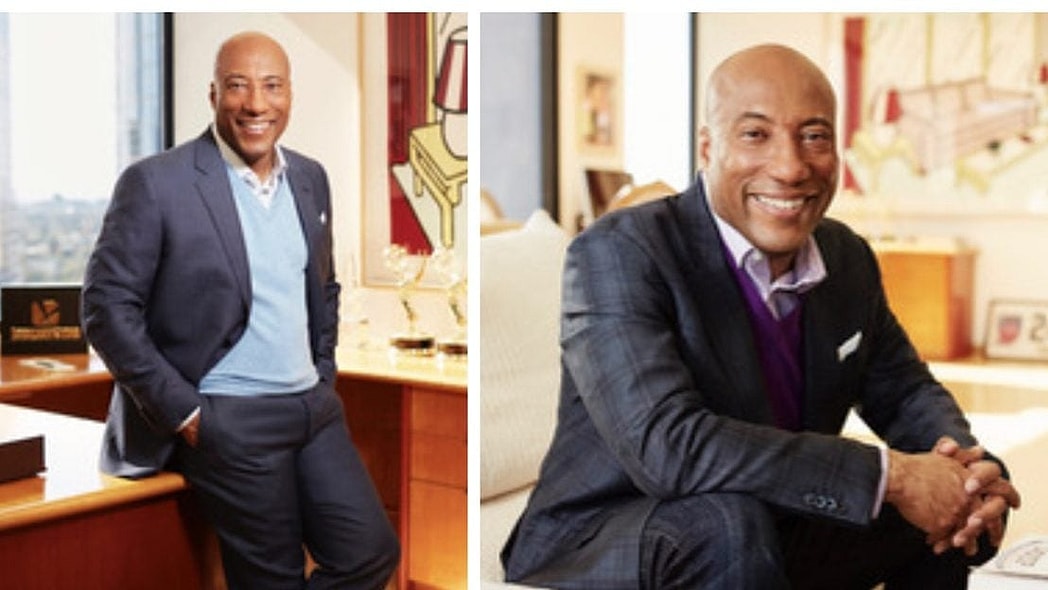Chairman and CEO of Entertainment Studios, Byron Allen, recently sat down with Variety to discuss his rise in the entertainment world and how he had to fight through years of racism and discrimination to get where he is today.
“My position was that I would have to work 100 times harder to get the same thing as a white person,” Allen said during a Variety sponsored diversity and inclusion panel in Los Angeles. “I’m cool with that because in the long run, that’s going to make me work 100 times harder.
Entertainment Studios was started in 1993 after Allen noticed the lack of African Americans in charge of entertainment companies and shows. Today, the company celebrates 25 years in Hollywood and currently includes eight cable networks, and syndicates 41 shows across the country.
Entertainment Studios is valued at over $2 billion and earlier this year completed the purchase of the Weather Channel. Entertainment Studios is also the parent company of theGrio.com.
During the panel, Allen talked about a conversation he had in 1994 with one of his sales executives who was told in no uncertain terms why a particular business would not advertise on one of his programs.
“I’ve had at least four to five of my salespeople come back to me and say ‘I’m not getting it done because of their attitude,’” he said during the panel. “He said ‘I’m not doing business with you because you work for that n—er.”
“I said to my sales people, ‘This is the moment where you have to decide to be ok or be great,'” he continued. “I’m Black and I can’t walk away, but you can.” According to Allen, everyone stayed and continued to work harder.
A big legal win
Allen also recently secured a pair of legal victories in his discrimination lawsuits against Comcast and Charter Communications.
The decision, which overturned a lower court decision to dismiss Allen’s initial suit, came from by The U.S. Court of Appeals for the Ninth Circuit in Pasadena, Ca. The panel also affirmed a lower court’s decision to deny Charter’s motion to dismiss Allen’s suit. It’s a groundbreaking move that can be the basis for similar lawsuits in the future.
Allen was forced to file a similar suit against AT&T and it was eventually settled in 2015 when DirecTV picked up seven of Entertainment Studios channels. The suits are rooted in a post-Civil War law meant to help protect newly freed slaves from discrimination in pursuing business deals and contracts.
Historically, the persecution of minority business owners intensified shortly after the end of the Civil War. In protest of the newly enacted Thirteenth Amendment, various Southern and Northern states enacted the so-called “Black Codes.” These codes imposed herculean legal limitations upon newly freed former slaves, severely limiting their ability to enter and enforce contracts for goods and labor. In response, Congress enacted the Civil Rights Act of 1866, which officially conferred a series of legal rights equally to all citizens, including the right to contract as an independent business owner.
“These two decisions against Comcast and Charter are very significant, unprecedented, and historic,” Allen said to Variety.. “The lack of true economic inclusion for African-Americans will end with me, and these rulings show that I am unwavering in my commitment to achieving this long overdue goal.”
During the Variety panel, Allen made it clear that he understands that he has to push to make sure his voice is hear from the beginning.
“For African-Americans, we’re at a distinct disadvantage. But that disadvantage worked to my advantage,” he added. “So, I had to quickly learn business show, not show business. When you’re a person of color, you better learn how to master business show.”
Allen has been at the forefront of advocating diversity in media since the 1980s, when he was one of the youngest comedians to appear on “The Tonight Show” in 1979 at the age of 18.


